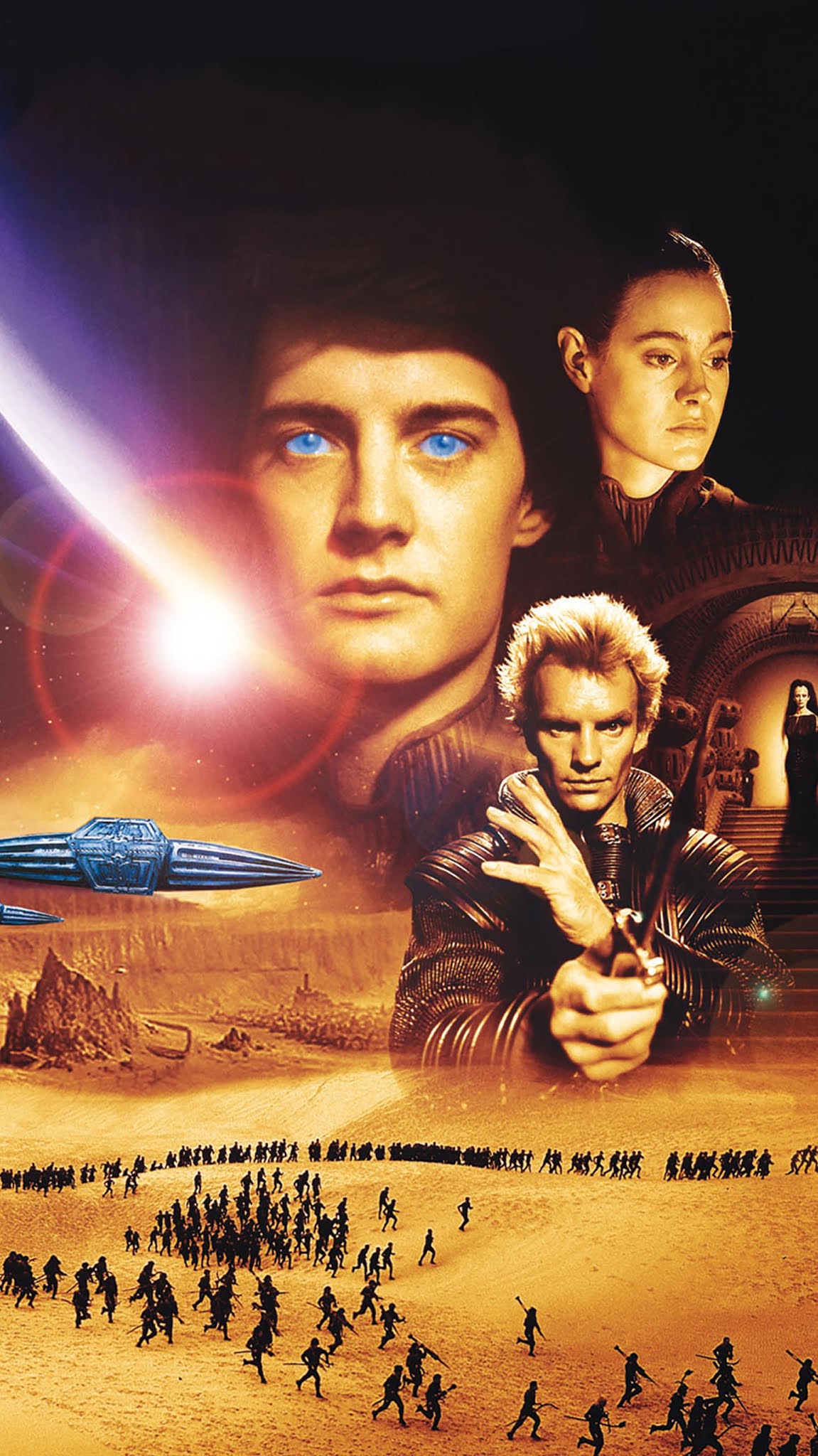Dune 1984 is a film that has captivated audiences for decades, blending science fiction with profound themes of politics, religion, and ecology. Directed by David Lynch, this adaptation of Frank Herbert's acclaimed novel takes viewers on an epic journey through the desert planet of Arrakis. The film features a star-studded cast, stunning visuals, and a haunting score that immerses the audience in its rich narrative tapestry. Despite its mixed reception upon release, Dune 1984 has since garnered a cult following, with fans appreciating its unique approach to the source material and its bold artistic choices.
The story revolves around Paul Atreides, a young nobleman whose family is entrusted with the stewardship of Arrakis, the only source of the universe's most valuable substance: the spice melange. As political intrigue unfolds and rival factions vie for control of the planet, Paul must navigate treacherous alliances and his own destiny. The film explores themes of power, destiny, and the human spirit, making it a complex yet rewarding viewing experience.
As we explore the intricacies of Dune 1984, it’s essential to delve into its production, the legacy it has left behind, and how it compares to modern adaptations of Herbert's seminal work. With a plethora of questions surrounding its impact and the artistic choices made by Lynch, we invite you to journey through the sands of time and uncover the mysteries of this iconic film.
What is the Legacy of Dune 1984?
Dune 1984 has solidified its place in cinema history, despite its initial failure at the box office. Over the years, it has transformed into a cult classic, admired for its ambitious storytelling and stunning visual effects. The film's unique aesthetic, characterized by elaborate costumes and set designs, has influenced countless filmmakers, creating a lasting impact on the science fiction genre. Fans often praise its atmospheric qualities, which set it apart from other adaptations.
How Did Dune 1984 Perform at the Box Office?
Upon its release, Dune 1984 faced considerable challenges. The film had a production budget of approximately $40 million but only managed to gross around $30 million worldwide. Critics were divided, with some praising its artistic ambition while others criticized its pacing and complexity. This mixed reception ultimately contributed to its initial commercial failure. However, as time passed, the film found a new audience, leading to its current status as a beloved classic.
What are the Key Themes Explored in Dune 1984?
The film delves into several profound themes that resonate with viewers. Some of the key themes include:
- Power and Politics: The struggle for control of Arrakis highlights the intricate dynamics of power and the consequences of political ambition.
- Destiny and Prophecy: Paul Atreides' journey is deeply intertwined with themes of fate and the burden of destiny.
- Ecology and Environment: The film raises questions about the exploitation of natural resources and the importance of environmental stewardship.
- Religion and Spirituality: The role of religion in shaping societies is a central theme, with characters often navigating their beliefs amidst turmoil.
Who Were the Key Cast Members of Dune 1984?
The film features a talented ensemble cast that brought the characters of Dune to life. Here are some of the prominent actors:
| Actor | Character |
|---|---|
| Kyle MacLachlan | Paul Atreides |
| Francesca Annis | Lady Jessica |
| Patrick Stewart | Duncan Idaho |
| Sting | Feyd-Rautha |
| Max von Sydow | Dr. Kynes |
What Production Challenges Did Dune 1984 Face?
The production of Dune 1984 was fraught with difficulties that impacted the final product. David Lynch faced significant challenges in adapting the complex source material into a cohesive narrative. The film underwent multiple script revisions, and the final cut was heavily edited, resulting in a runtime of just over two hours. This editing process left some plot points underdeveloped, leading to confusion among audiences unfamiliar with the novel. Furthermore, the ambitious special effects and set designs were groundbreaking for their time, but also contributed to production delays and budget overruns.
How Does Dune 1984 Compare to Modern Adaptations?
In recent years, the resurgence of interest in Frank Herbert's Dune has led to new adaptations, most notably Denis Villeneuve's 2021 film. While both films share a common source material, they differ significantly in style and execution. Villeneuve's adaptation has been praised for its visual fidelity and pacing, while Lynch's version is often celebrated for its artistic flair and surreal elements. Fans of the original film often appreciate its unique interpretation, while new viewers may prefer the more straightforward approach of the latest adaptation.
What Can We Learn from Dune 1984 Today?
Dune 1984 serves as a reminder of the power of storytelling in cinema. The film's exploration of complex themes remains relevant in today's world, encouraging viewers to reflect on their own beliefs and values. Additionally, it highlights the importance of creative vision and artistic expression, even in the face of commercial challenges. As fans continue to celebrate Dune 1984, it stands as a testament to the enduring nature of great storytelling in film.
In conclusion, Dune 1984 is a film that has transcended its initial reception, evolving into a beloved classic with a rich legacy. Its complex narrative and stunning visuals continue to inspire and provoke thought, ensuring that it remains a significant work within the science fiction genre. As we look back on this cinematic journey, we are reminded of the magic that can be created when ambition meets creativity, making Dune 1984 a timeless piece of art.

.2.jpg)


